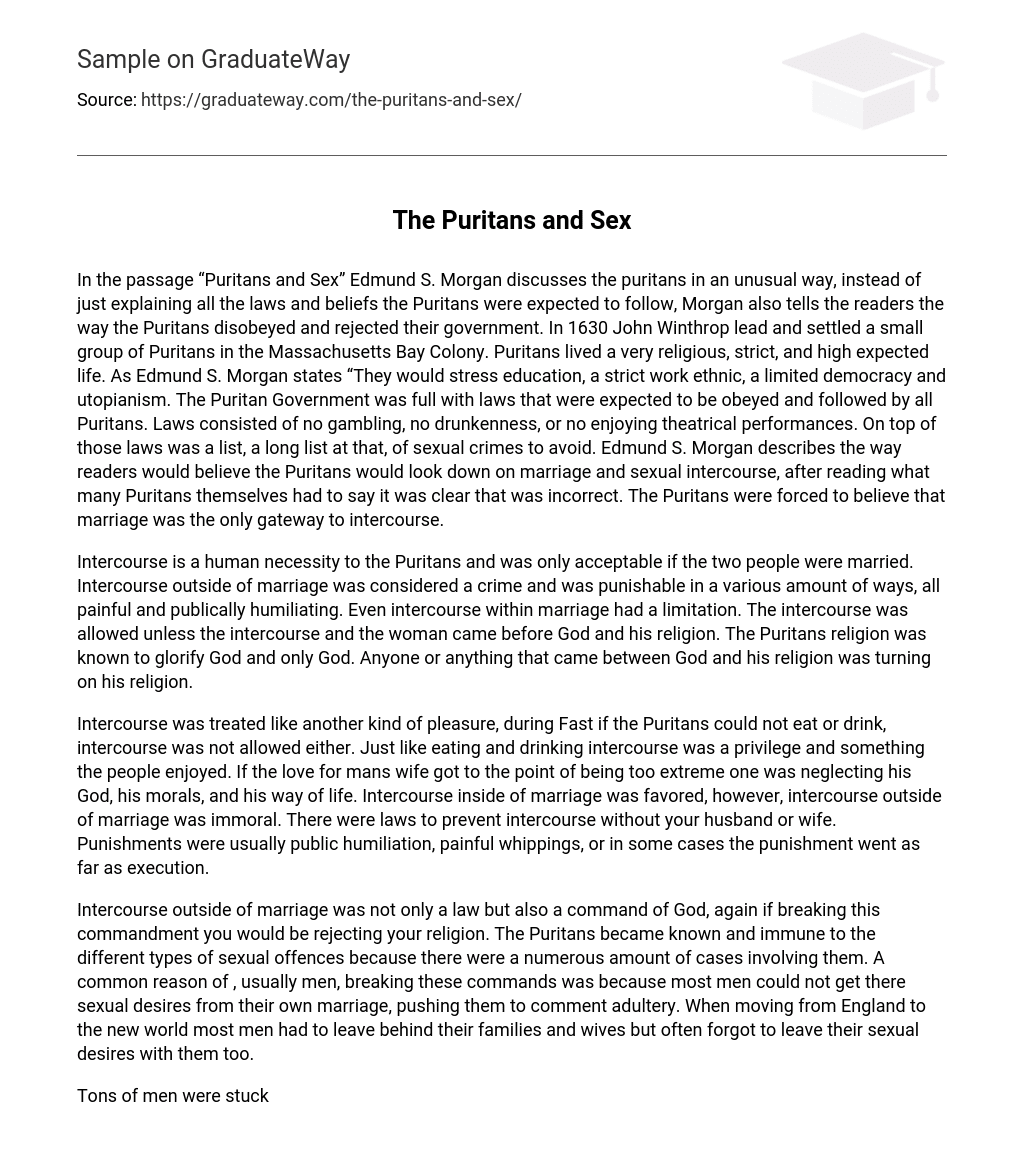In the passage “Puritans and Sex” Edmund S. Morgan discusses the puritans in an unusual way, instead of just explaining all the laws and beliefs the Puritans were expected to follow, Morgan also tells the readers the way the Puritans disobeyed and rejected their government. In 1630 John Winthrop lead and settled a small group of Puritans in the Massachusetts Bay Colony. Puritans lived a very religious, strict, and high expected life. As Edmund S. Morgan states “They would stress education, a strict work ethnic, a limited democracy and utopianism. The Puritan Government was full with laws that were expected to be obeyed and followed by all Puritans. Laws consisted of no gambling, no drunkenness, or no enjoying theatrical performances. On top of those laws was a list, a long list at that, of sexual crimes to avoid. Edmund S. Morgan describes the way readers would believe the Puritans would look down on marriage and sexual intercourse, after reading what many Puritans themselves had to say it was clear that was incorrect. The Puritans were forced to believe that marriage was the only gateway to intercourse.
Intercourse is a human necessity to the Puritans and was only acceptable if the two people were married. Intercourse outside of marriage was considered a crime and was punishable in a various amount of ways, all painful and publically humiliating. Even intercourse within marriage had a limitation. The intercourse was allowed unless the intercourse and the woman came before God and his religion. The Puritans religion was known to glorify God and only God. Anyone or anything that came between God and his religion was turning on his religion.
Intercourse was treated like another kind of pleasure, during Fast if the Puritans could not eat or drink, intercourse was not allowed either. Just like eating and drinking intercourse was a privilege and something the people enjoyed. If the love for mans wife got to the point of being too extreme one was neglecting his God, his morals, and his way of life. Intercourse inside of marriage was favored, however, intercourse outside of marriage was immoral. There were laws to prevent intercourse without your husband or wife. Punishments were usually public humiliation, painful whippings, or in some cases the punishment went as far as execution.
Intercourse outside of marriage was not only a law but also a command of God, again if breaking this commandment you would be rejecting your religion. The Puritans became known and immune to the different types of sexual offences because there were a numerous amount of cases involving them. A common reason of , usually men, breaking these commands was because most men could not get there sexual desires from their own marriage, pushing them to comment adultery. When moving from England to the new world most men had to leave behind their families and wives but often forgot to leave their sexual desires with them too.
Tons of men were stuck in Massachusetts with no wife but a need for intercourse. Other causes of intercourse outside of marriage was upon the servants or maids. The masters knew what kind of power the held and used it to the fullest. The Puritans looked at intercourse as a gift or privilege that came along with marriage. Because many men disobeyed the laws and commands of God it was not uncommon to hear of the many cases of adultery committed by the Puritans. Intercourse was a human necessity that was abused by many.





